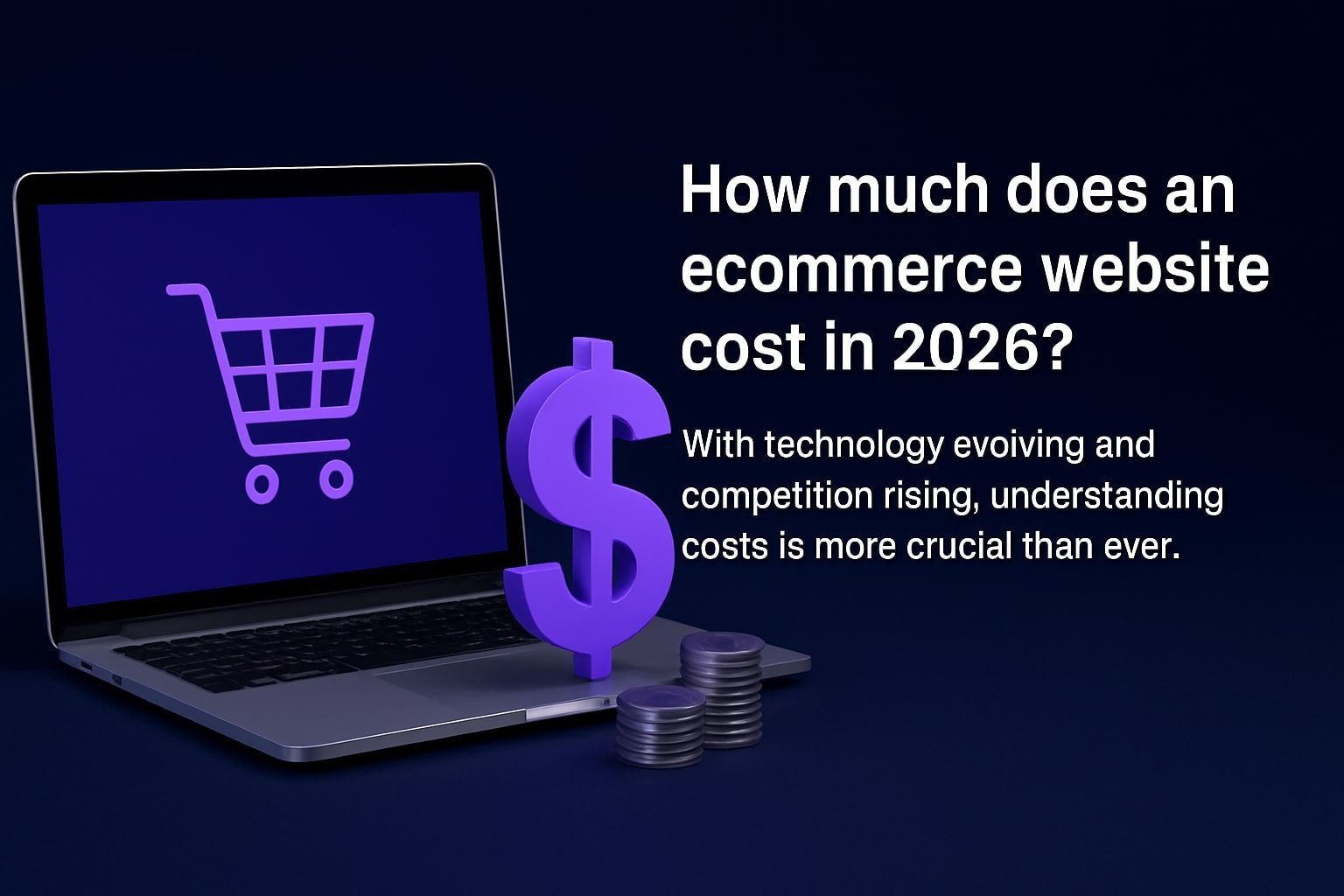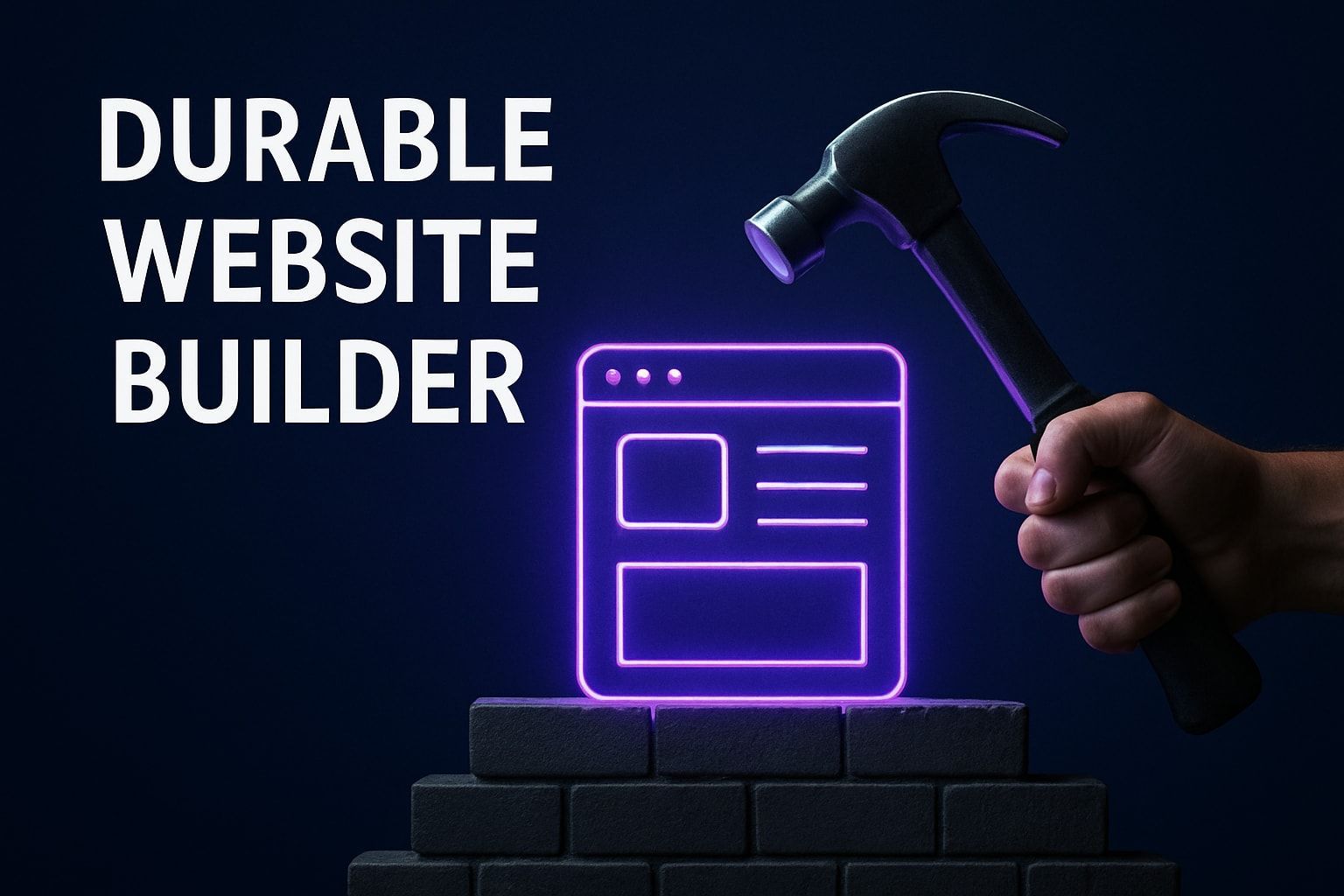7 Best Website Design CMS Platforms for 2025
Choosing the right website design cms can make or break your online presence in 2025. With design platforms evolving at lightning speed, finding a solution that keeps up is essential for anyone looking to stand out.
Today’s CMS tools are more powerful and user-friendly than ever before. They shape how we build, launch, and manage websites, blending design flexibility with smart automation and robust features.
In this article, you’ll discover the 7 best CMS platforms for website design in 2025. Whether you’re a business owner, designer, or entrepreneur, you’ll find the perfect fit for your needs.
Ready to explore the top solutions and unlock your website’s full potential? Let’s dive in.
What Makes a Great Website Design CMS in 2025?
Selecting the right website design cms is more critical than ever as digital expectations soar in 2025. With so many options available, understanding what sets the best platforms apart can make all the difference for your site's success. Let's break down the essential features, trends, use cases, and evaluation tips to help you make an informed choice.
Key Features to Look For
A great website design cms in 2025 should feel intuitive from the start. Look for platforms offering drag-and-drop editors, which make it easy to build and customize pages without any coding skills. Responsive, mobile-friendly templates are a must, ensuring your site looks sharp on every device.
Performance and visibility matter, so integrated SEO tools and optimization features are essential. Built-in connections to ecommerce, marketing, and analytics platforms save time and streamline workflows. Security, scalability, and regular updates round out the core features you should expect.
Here's a quick comparison table to help you identify must-have features:
| Feature | Importance in 2025 |
|---|---|
| Drag-and-drop editor | Essential |
| Mobile-responsive templates | Critical |
| Built-in SEO tools | Mandatory |
| Third-party integrations | Highly recommended |
| Security & updates | Non-negotiable |
For a deeper dive into the latest tools, check out the Best web design software of 2025 to see how top platforms stack up.
Trends Shaping CMS Platforms
The world of website design cms is evolving rapidly. AI-powered design and content generation are transforming how sites are built, making it faster to launch and maintain polished websites. The demand for low-code and no-code solutions continues to rise, empowering users of all skill levels.
Personalization is front and center, with CMS platforms focusing on tailored user experiences and dynamic content. Support for multi-channel publishing ensures your content reaches audiences wherever they are, from websites to apps and beyond.
Accessibility and compliance are also major priorities, ensuring every visitor can enjoy your site regardless of ability or device. These trends drive the innovation behind the next generation of website design cms.
Common Use Cases and Target Audiences
A modern website design cms serves a wide range of needs. Small businesses, startups, and entrepreneurs value quick setup and easy management. Agencies and freelancers look for customization, scalability, and the ability to handle multiple projects efficiently.
Ecommerce brands benefit from robust product catalogs, payment integrations, and marketing tools. Meanwhile, bloggers, portfolio creators, and content-driven sites need strong publishing and media management features.
Choosing the right website design cms depends on your unique goals, whether you're building a simple blog, a vibrant portfolio, or a large online store.
How to Evaluate CMS Options
Before committing to a website design cms, take a close look at pricing structures and any hidden costs. Consider the quality of community support, documentation, and third-party resources available. Migration, backup, and export options are crucial if you plan to grow or shift platforms in the future.
User reviews, ratings, and real-world case studies provide valuable insights into how a CMS performs in practice. Look for platforms with proven track records and positive user experiences. By evaluating these aspects, you'll be well-equipped to choose a website design cms that matches your needs both now and down the road.
7 Best Website Design CMS Platforms for 2025
Choosing the perfect website design cms for your next project can feel overwhelming. With countless options and new innovations arriving each year, knowing which platform to trust is essential. In 2025, the landscape is more diverse than ever, with each CMS platform offering unique tools, AI features, and design capabilities tailored for different needs.
To help you navigate, we've curated the top seven website design cms solutions that stand out for performance, flexibility, and user experience. Whether you're a solo entrepreneur, a creative agency, or a growing eCommerce brand, these platforms deliver the technology and support you need to thrive online.
Not sure which direction to take? If you want to explore even more website builder options, check out the Best website builders of 2025 for a comprehensive overview.
1. Avantiy
Avantiy is a cutting-edge website design cms designed for the future of web creation. With a generous free trial and affordable monthly plans, Avantiy makes professional website design accessible to individuals and businesses alike.
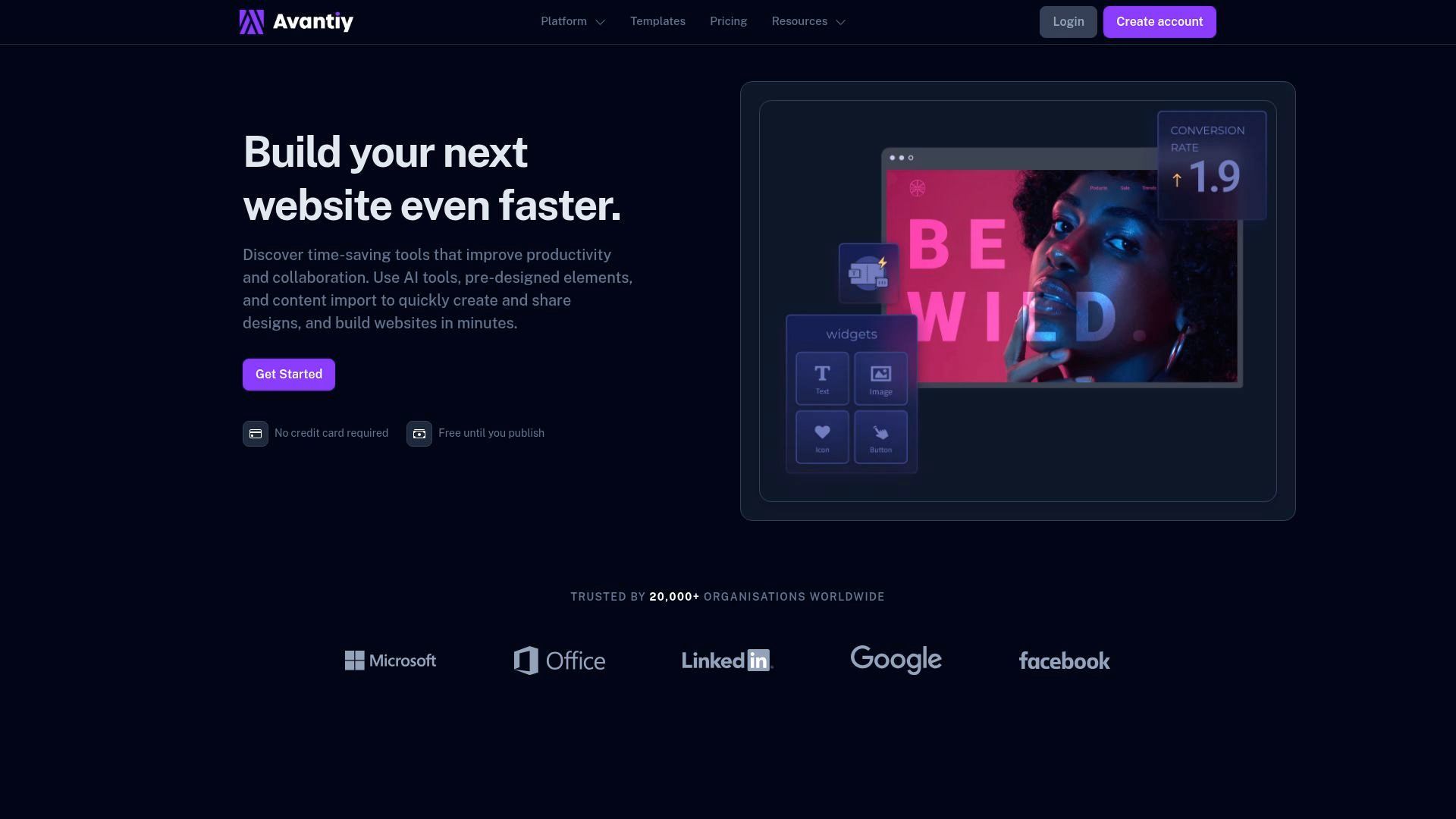
Core Features:
- AI-powered website builder for instant layouts and content generation
- Intuitive drag-and-drop editor
- Customizable, mobile-first templates
- Integrated SEO tools and marketing features
- eCommerce support with secure payment integration
Key Benefits:
- Launch a website in minutes without coding
- Automated design suggestions powered by AI
- Seamless integrations with marketing and analytics tools
- Built-in performance optimization for fast loading
Target Audience:
- Startups, small businesses, entrepreneurs, and anyone needing a quick, professional web presence
Pros:
- User-friendly interface
- Advanced AI-driven design and content generation
- Excellent customer support
Cons:
- Less flexibility for developers needing deep customization
Unique Selling Points:
- AI-powered automation
- Rapid deployment
- Perfect for non-technical users seeking a modern website design cms
Avantiy’s blend of automation and simplicity makes it a standout for 2025.
2. WordPress.org
WordPress.org remains the powerhouse of the website design cms world. As a free open-source platform, you only pay for hosting and any premium themes or plugins you choose.
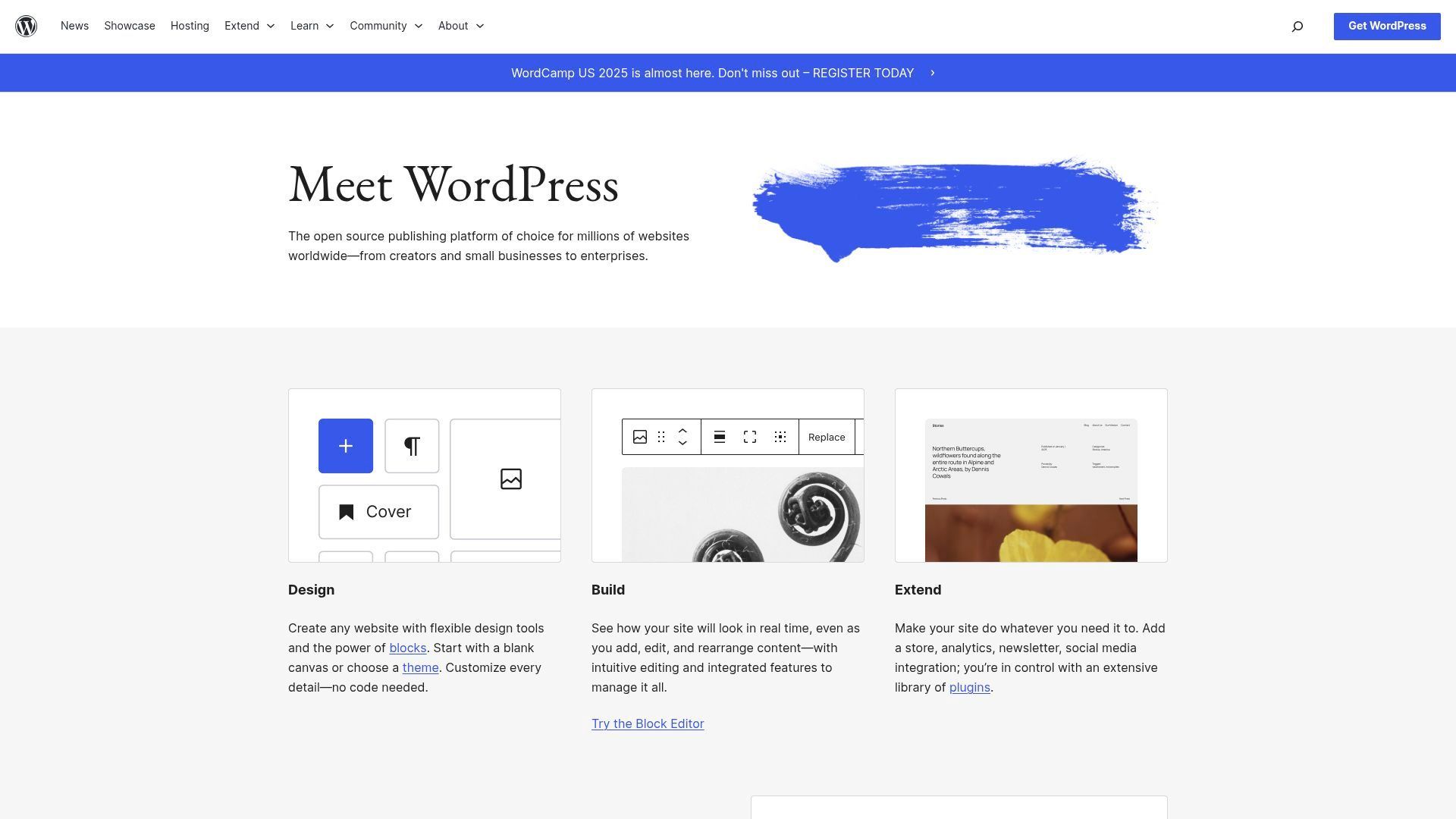
Core Features:
- Vast plugin ecosystem for every feature imaginable
- Highly customizable themes and layouts
- Robust blogging and content management tools
- Massive support community
K
ey Benefits:
- Unmatched flexibility for any type of website
- Scalable for everything from personal blogs to enterprise portals
- SEO-friendly out of the box
Target Audience:
- Bloggers, agencies, businesses, and developers who want full control
Pros:
- Limitless customization possibilities
- Strong community and documentation
- Regular updates and security patches
Cons:
- Requires technical knowledge for maintenance and security
- Manual updates and backups
Unique Selling Points:
- Largest market share globally
- Open-source freedom
- Infinite plugin and theme options
WordPress.org is the go-to website design cms for those seeking total control and scalability.
3. Webflow
Webflow is the designer’s dream website design cms, blending visual creativity with technical precision. Its free starter plan and scalable paid options make it accessible to all.
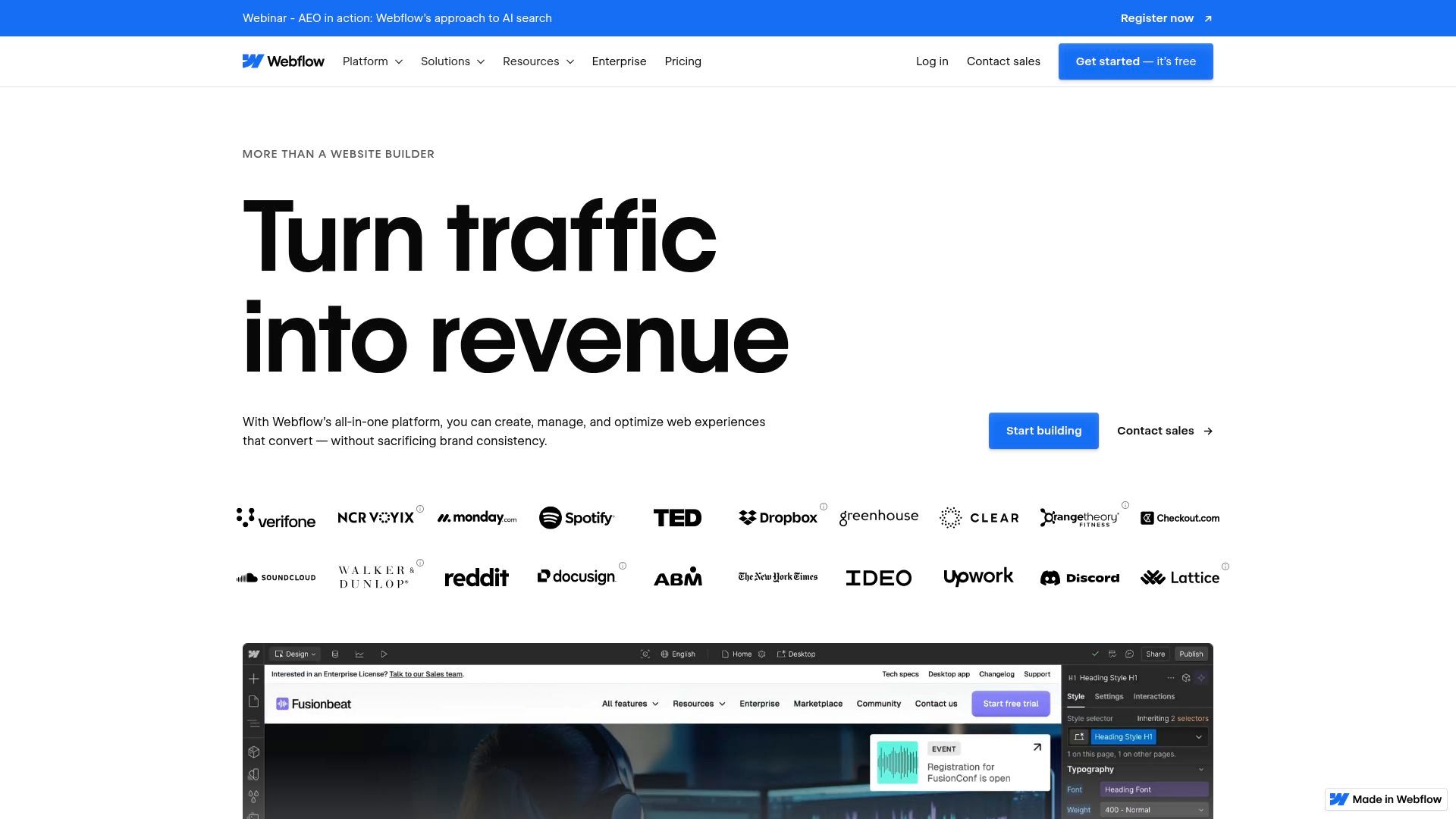
Core Features:
- Visual website builder with pixel-perfect control
- CMS collections for dynamic content
- Responsive, mobile-optimized layouts
- Animation and interaction tools
- eCommerce support
Key Benefits:
- Professional design tools without coding
- Lightning-fast, secure hosting
- Clean code export for developers
Target Audience:
- Designers, agencies, freelancers, and businesses valuing design precision
Pros:
- Powerful visual editor
- Advanced animation capabilities
- Robust CMS for designers and marketers
Cons:
- Learning curve for new users
- Higher costs for advanced features
Unique Selling Points:
- Visual-first design environment
- Pro-grade animation tools
- Flexible CMS for creative professionals
Webflow empowers you to craft a truly unique website design cms without compromise.
4. Shopify
Shopify leads the industry for eCommerce-focused website design cms solutions, with monthly plans starting at $39.
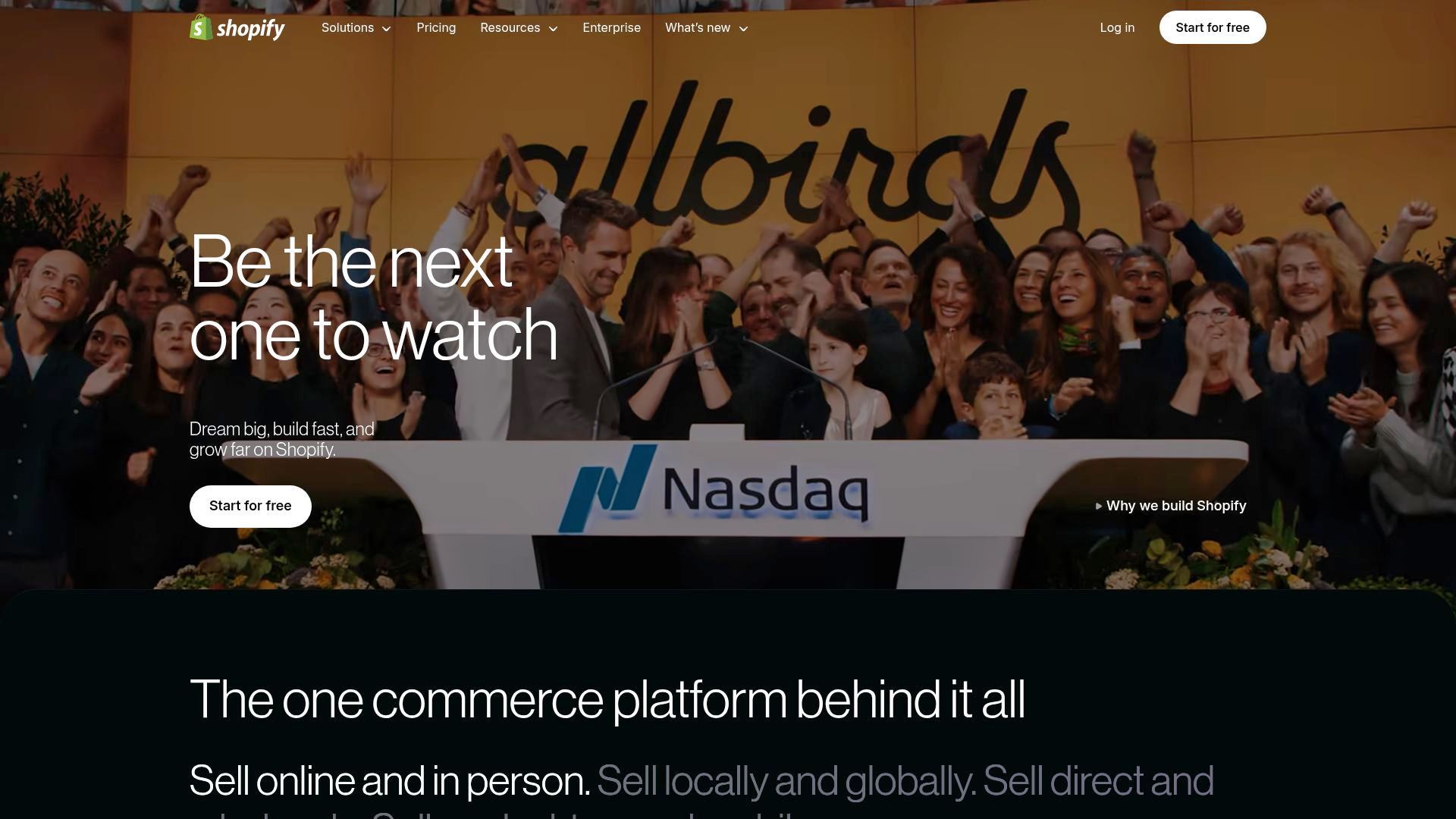
Core Features:
- All-in-one eCommerce platform
- Customizable themes
- Integrated payment processing
- Inventory and order management
- App store for extended functionality
Key Benefits:
- Launch and manage online stores quickly
- Secure transactions and global sales support
- 24/7 customer support
Target Audience:
- E-commerce businesses, retailers, and entrepreneurs
Pros:
- Simple setup and management
- Scalable for growing stores
- Reliable, high-performance hosting
Cons:
- Transaction fees may apply
- Limited customization for non-eCommerce sites
Unique Selling Points:
- Industry-leading eCommerce tools
- Seamless scaling for any business size
For those focusing on online sales, Shopify is a top website design cms. If you want to explore even more eCommerce options, see the Best ecommerce software of 2025 for additional insights.
5. Squarespace
Squarespace is renowned for its gorgeous templates and all-in-one approach to website design cms needs. Monthly plans start at $16, with eCommerce options available.
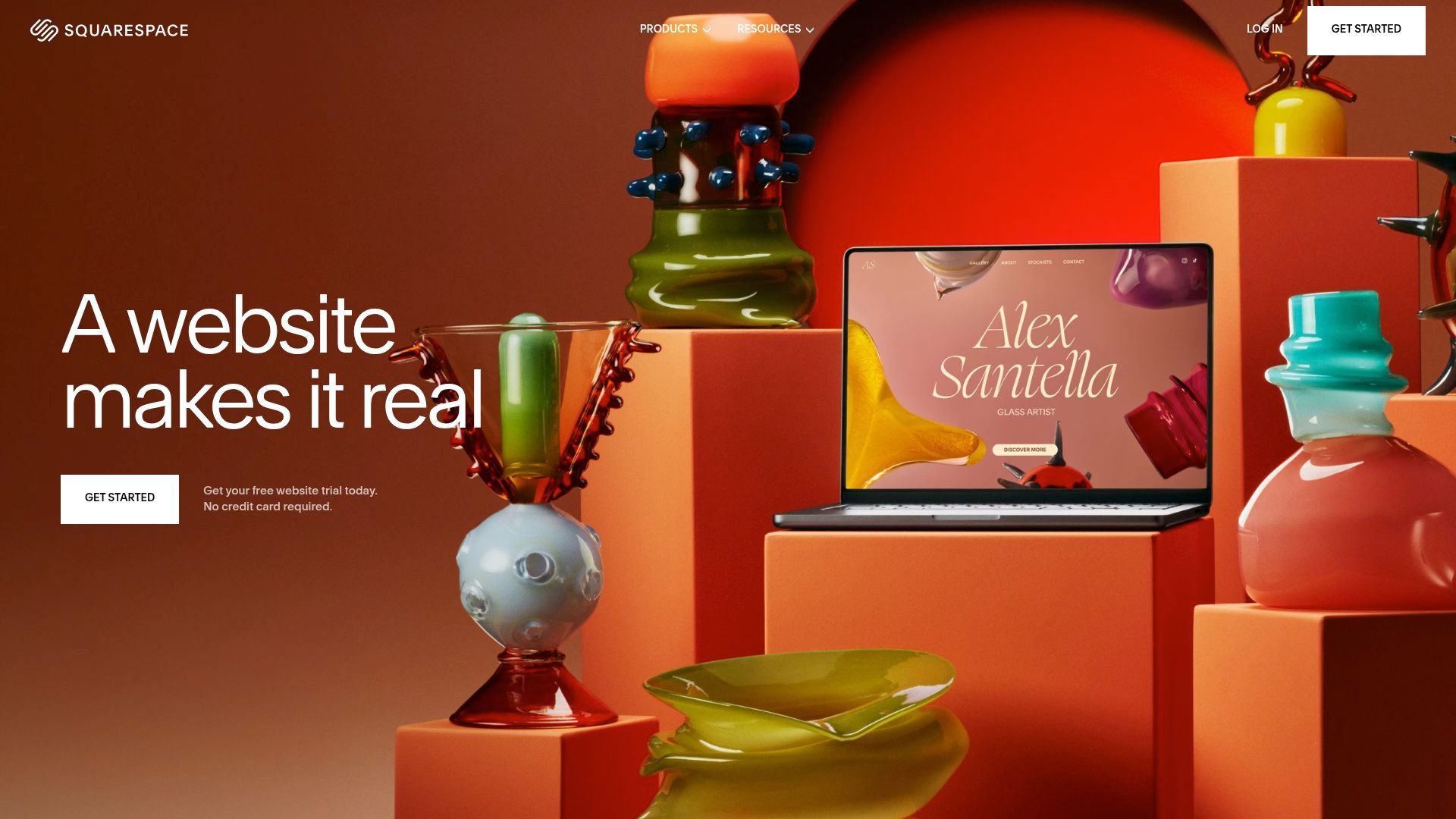
Core Features:
- Award-winning design templates
- Drag-and-drop editor
- Built-in SEO and analytics
- Blogging and eCommerce tools
Key Benefits:
- Visually stunning, professional websites in minutes
- Easy-to-use interface for all skill levels
- Integrated marketing tools
Target Audience:
- Creatives, small businesses, portfolio sites, and bloggers
Pros:
- Beautiful, design-centric templates
- Reliable hosting and security
- Strong customer support
Cons:
- Limited third-party integrations
- Less flexibility for advanced users
Unique Selling Points:
- Seamless user experience
- Integrated platform for design, marketing, and sales
Squarespace is a top choice for those who value aesthetics and simplicity in a website design cms.
6. Wix
Wix brings versatility and ease to the website design cms market, with a free plan and premium options from $16/month.
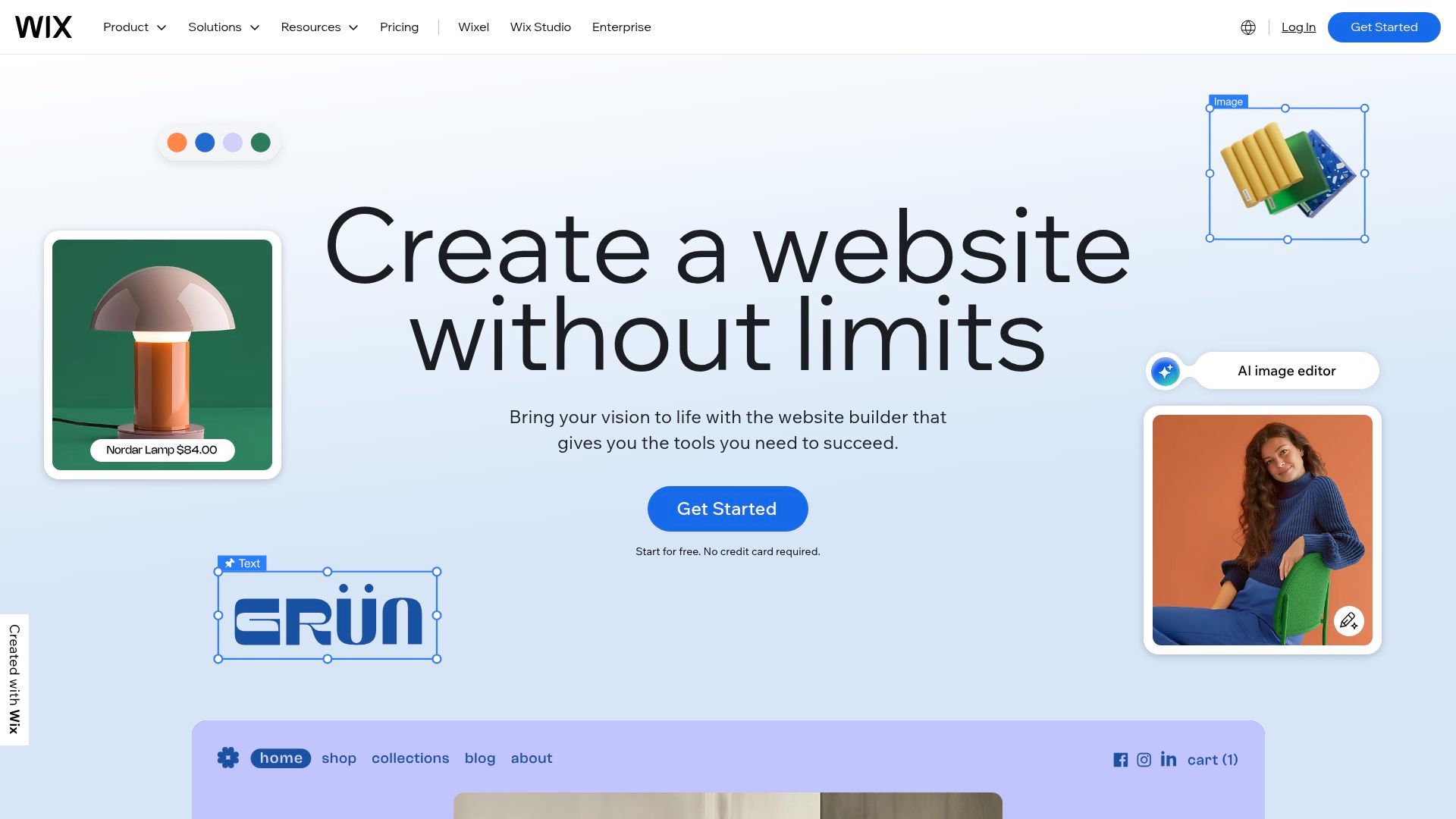
Core Features:
- Drag-and-drop website builder
- Hundreds of customizable templates
- App market for added features
- Built-in SEO and analytics
- eCommerce capabilities
Key Benefits:
- Fast and user-friendly site creation
- Extensive customization for non-coders
- Robust support and resources
Target Audience:
- Small businesses, startups, creatives, and eCommerce ventures
Pros:
- Intuitive setup process
- Flexible design tools
- Strong support community
Cons:
- Limited control over code
- Not ideal for large-scale or complex sites
Unique Selling Points:
- AI website creation with Wix ADI
- Expansive app ecosystem
Wix is the go-to website design cms for those wanting a quick, customizable, and affordable web solution.
7. Drupal
Drupal is the enterprise-grade website design cms favored by large organizations and institutions. It’s free and open-source, but development and maintenance require expertise.
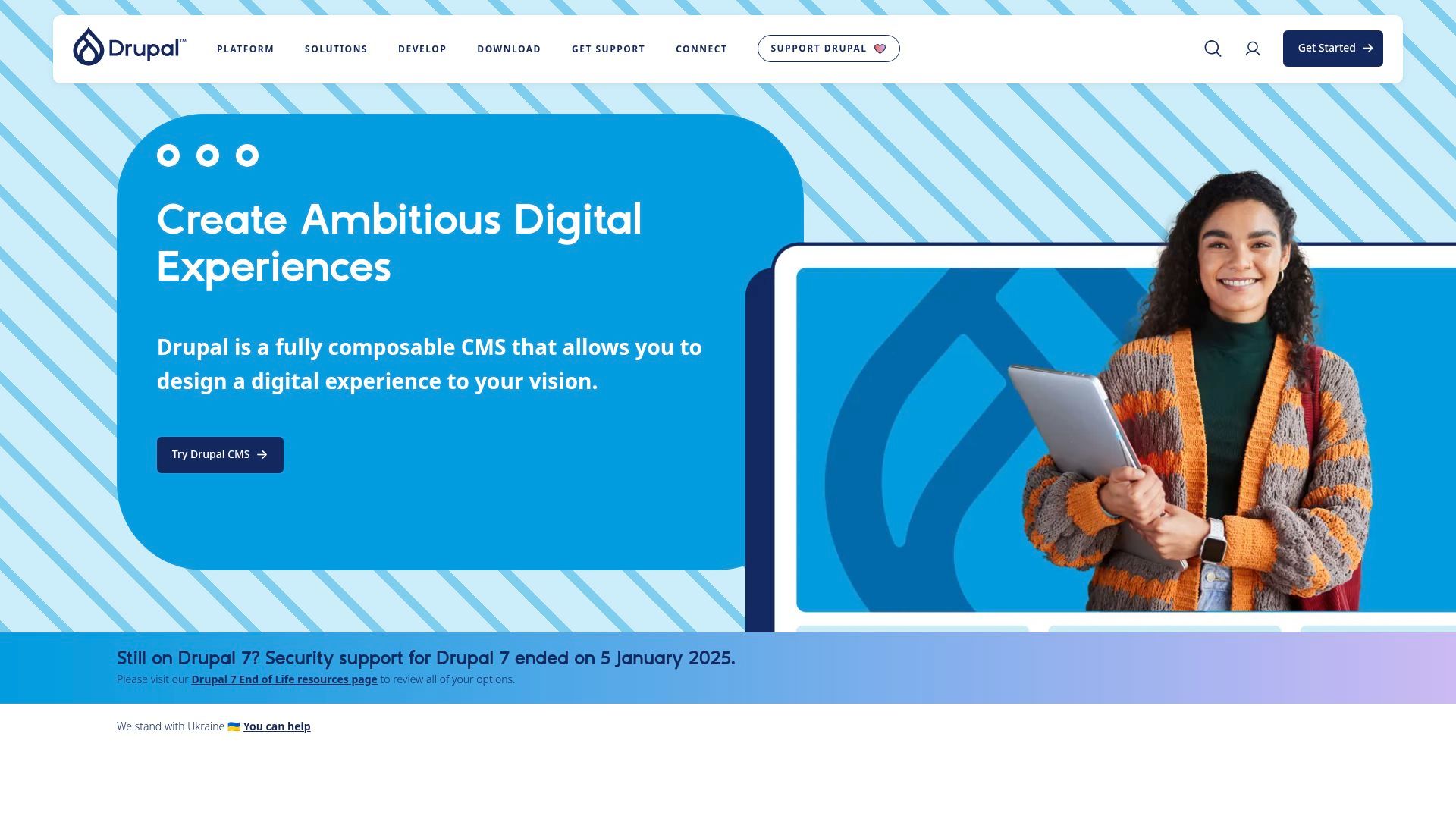
Core Features:
- Advanced content management
- Scalability for complex, high-traffic sites
- Multilingual and accessibility support
- Robust security and extensive module library
Key Benefits:
- Highly customizable for unique requirements
- Enterprise-level security and stability
- Flexible architecture for integrations
Target Audience:
- Large organizations, government, higher education, and developers
Pros:
- Handles complex workflows and large sites
- Strong security and compliance features
- Vibrant developer community
Cons:
- Steep learning curve
- Requires technical skills for setup and management
Unique Selling Points:
- Robust API and integration options
- Trusted for mission-critical applications
Drupal remains a premier website design cms for those tackling large-scale or specialized projects.
Quick Comparison Table
| Platform | Best For | Pricing | AI Features | eCommerce | Customization | Support |
|---|---|---|---|---|---|---|
| Avantiy | Beginners, SMBs | Free trial/$ | Yes | Yes | Low-Medium | Excellent |
| WordPress.org | All use cases | Free/open src | Limited (plugins) | Yes (plugins) | High | Large Community |
| Webflow | Designers, agencies | Free/$ | Yes | Yes | High | High Good |
| Shopify | eCommerce | $39+/mo | Yes (apps) | Yes | Medium | 24/7 Support |
| Squarespace | Creatives, portfolios | $16+/mo | Limited | Yes | Low-Medium | Strong |
| Wix | SMBs, creatives | Free/$16+/mo | Yes (Wix ADI) | Yes | Yes Medium | Robust |
| Drupal | Enterprise, developers | Free/open src | Limited | Yes (modules) | Very High | Dev Community |
With so many website design cms choices, the right fit will depend on your goals, budget, and technical skills. Each platform on this list brings something unique to the table, ensuring you’ll find a solution that matches your needs for 2025 and beyond.
Comparing the Top CMS Platforms: Which Is Right for You?
Choosing the right website design cms can feel overwhelming with so many powerful options in 2025. To help you navigate the landscape, let’s break down the strengths, ideal users, and real-world results of each platform.
Platform Strengths and Weaknesses
Every website design cms brings unique advantages and potential trade-offs. Here’s a quick comparison to help you spot the best fit:
| Platform | Design Flexibility | Ease of Use | Scalability | Integrations | Security |
|---|---|---|---|---|---|
| Avantiy | High (AI-driven) | Very Easy | Moderate | Strong | Good |
| WordPress | Very High | Moderate | High | Excellent | Varies |
| Webflow | Exceptional | Moderate | High | Good | Strong |
| Shopify | Moderate | Very Easy | High | Very Good | Excellent |
| Squarespace | High | Very Easy | Moderate | Limited | Strong |
| Wix | High | Very Easy | Moderate | Good | Good |
| Drupal | Very High | Complex | Exceptional | Excellent | Excellent |
Performance-wise, most modern website design cms platforms offer speed, SEO, and mobile responsiveness out of the box. However, platforms like Avantiy and Webflow stand out for their AI-powered features and visual-first approaches, while Drupal and WordPress excel in scalability and customization.
Choosing Based on Your Needs
Not every website design cms is a one-size-fits-all solution. Here are some recommendations based on your goals:
- Beginners and non-technical users: Avantiy, Wix, and Squarespace shine with intuitive interfaces and drag-and-drop simplicity.
- E-commerce and online stores: Shopify leads for dedicated eCommerce, while Wix and Squarespace support smaller online shops.
- Designers and agencies: Webflow offers unmatched design precision, while WordPress allows for deep customization.
- Large-scale, complex projects: Drupal and WordPress are ideal for enterprises, government, or higher education sites needing robust architecture.
Consider your technical skill level, growth plans, and the specific features your website design cms must deliver. Prioritizing these factors will help ensure you choose a platform that’s both future-proof and tailored to your needs.
Real-World Case Studies and Success Stories
Thousands of businesses and creators have built their brands using these website design cms platforms. WordPress powers over 40% of the web, while Shopify supports millions of online stores globally. Platforms like Avantiy are emerging as favorites for rapid, AI-driven site creation.
User satisfaction ratings remain high for intuitive tools like Wix and Squarespace, with many agencies preferring Webflow for its design control. For a deeper look at how content strategy and engagement are evolving, check out Audience Engagement 2025: Korbyt, which explores how digital platforms are adapting to keep audiences engaged in a fast-changing landscape.
Whether you’re migrating from another system or planning to scale, these website design cms choices offer proven pathways for growth and innovation.
Now that you’ve seen what the top CMS platforms have to offer for 2025, it’s clear how much easier and more intuitive website building has become—especially with AI-powered tools, customizable templates, and built-in SEO features leading the way. If you’re ready to put these insights into action and start creating a standout site, why not take the next step? Whether you’re a total beginner or just want a faster, smarter way to launch your online presence, you can
Start Building Your Website Today and see just how effortless it can be to bring your vision to life.
Start building your new website today
No credit of debit card required start building today



